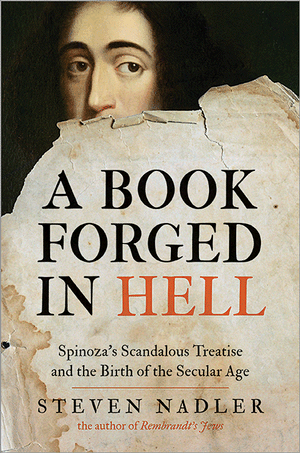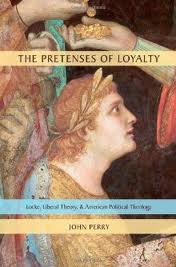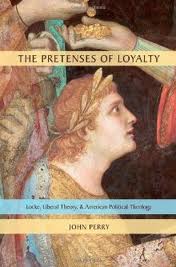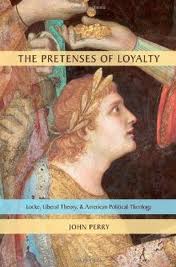
Writing in May, 1670, the German theologian Jacob Thomasius fulminated against a recent, anonymously published book. It is, he claimed, “a godless document” that should be immediately banned in all countries. His Dutch colleague, Regnier Mansveld, a professor at the University of Utrecht, insisted that the new publication was harmful to all religions and “ought to be buried forever in an eternal oblivion.” Willem van Blijenburgh, a philosophically inclined Dutch merchant, wrote that “this atheistic book is full of abominations … which every reasonable person should find abhorrent.” One disturbed critic went so far as to call it “a book forged in hell”, written by the devil himself.

The crucial thread in Perry’s narrative has been that of the “turn to loyalty”: where Rawlsian liberalism can dismiss the problem of religious loyalty and imagine that religious and political loyalties ought by their very nature never to conflict, Locke recognized clearly that such conflicts do happen, and such loyalties must be carefully attended to if they are to be harmonized. Accordingly, he provides not merely a solution of political theory, but a solution of political theology that attempts to establish, from within Christianity, the proper nature of Christian loyalty. Unfortunately, most interlocutors today simply no longer recognize the tension but persist in a naïve conviction that civil loyalty and religious loyalty ought to pose no threat to one another in modern America…

Chapters 4 and 5 of Pretenses of Loyalty constitute the heart of Perry’s argument, offering as they do an intriguing re-interpretation of Locke’s Letter Concerning Toleration and revealing the tensions that will bedevil it in following centuries. Perry’s overall thesis, we will recall, is that modern liberalism suffers from an amnesia, forgetting that there are in fact two prerequisites for a successful policy of religious toleration: harmonization of loyalties and abstract respect. Relying upon the latter alone, modern liberals find themselves flummoxed at the frequency with which border conflicts erupt between religion and politics—having agreed to tolerate all purely religious practices, governments find that many believers insist on expanding the scope of their religion to include civil matters. They ask that believers consent to be led behind a veil of ignorance, willing to treat others and themselves be treated as abstract rights-bearers, but many believers refuse.

One of the most valuable contributions of Perry’s book is his attempt to illuminate the heretofore rather unexplored territory of Locke’s early work—his 1667 Essay on Toleration and especially his 1660 First Tract on Government. So obsessed are political philosophers and Locke scholars with the magna opera of 1689 that they have tended to pass over these earlier works in silence, but from the standpoint of understanding Locke’s theory of toleration, this is a great mistake, as Perry shows. Why? Well because the early Locke was an opponent of toleration, arguing forcefully against Puritans in the First Tract that the magistrate had the right to impose uniformity in religious practice, and ought to exercise this right. Why the about-face? Only if we take seriously this question, says Perry, will we be able to understand what led him to articulate his full-blown theory of toleration in 1689, and what he sought to accomplish with that theory. Moreover, in so doing, we will find that the argument for toleration is not so much of an about-face from the argument against it as we might have imagined.

John Perry’s recent book “The Pretenses of Loyalty” offers a clear, penetrating, and persuasive diagnosis of the predicament of contemporary liberal political theory through consideration not only of its present tensions, but more importantly, of its amnesia regarding its historical foundations. I say clear because Perry’s exposition is tightly focused, lucidly written, and structured so as to ensure ease of understanding. By missing no opportunity to repeat his main thesis and the key issues at stake, he walks a fine line, to be sure, between assisting and insulting his readers, but ultimately avoids the latter in my judgment. The diagnosis is penetrating because it does not rest content with surveying the ongoing contemporary conflicts between politics and religion and the critiques marshaled by communitarian theorists such as Michael Sandel and Stanley Fish—though he does this admirably in the first two chapters—but digs right down to the historical roots of liberal theory, the amnesia of which, he argues, is largely responsible for its present predicament….